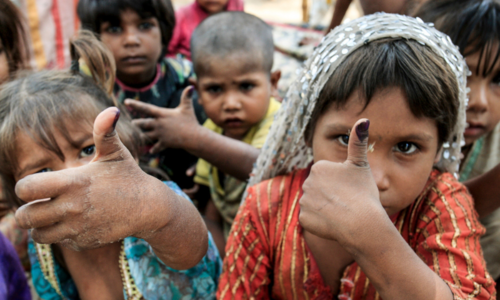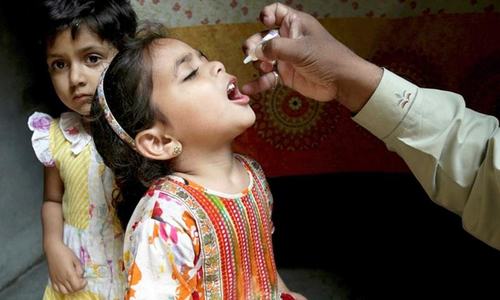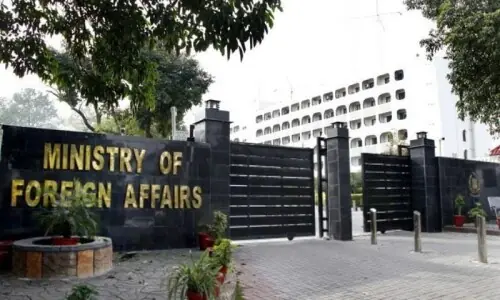ALBERT Einstein said, “Only a life lived for others is a life worthwhile.” Perhaps the quote depicts the mission of Raima Mengal, a resident of Killi Mohammad Hassani of Quetta, who has become a symbol of trust in her community.
Wearing a traditional embroidered dress and shawl, she was walking under scorching sun with a community health worker in her area to convince some families to get their children vaccinated against polio. She knocked on a door and an angry man came out of the house speaking with the polio worker and Ms Raima in a harsh tone.
“If something happened to my child, you will be responsible for it,” he said. Ms Raima replied: “I take the responsibility, and nothing will happen to your child because polio drops are completely safe. I myself have administered these drops to my three children.”
The family agreed and allowed the polio worker to administer drops to their children. Nothing happened to them and now the family is willing to get their children vaccinated in every round of polio campaign.
After being persuaded by Raima, many unwilling parents have allowed their children to be vaccinated
Raima Mengal is voluntarily supporting polio frontline workers in her area. She admires the efforts of the community health workers and says: “I have seen how these local women are going an extra mile to cover every child. It’s not an easy job to go house to house despite weather extremities, cultural barriers, and other reasons. Even I have seen polio workers taking their infants and toddlers, too, in the field if there is no one at their houses to take care of the children. The polio workers vaccinate their own children in front of families to convince them for vaccination.”
Ms Raima said that health workers came to her house and asked for help in convincing the parents who were hesitant to allow vaccination of their children.
“Most of them refuse because their children are sick or they think that the vaccine causes infertility. I still remember when I was a child how our teachers made us form a queue in school to get vaccinated,” Ms Raima said. “Now I am married and have four children. That’s the thing I want to make my community understand that polio vaccine doesn’t cause infertility.”
Ms Raima is a well-known influencer in her area because she is running a welfare trust called “Sirat-i-Mustaqeem” to help the needy families. She collects donations on her own and supports the needy, specially widows, orphans and special and elderly persons of her community by providing them necessities of life. “I provide food items to the needy people. If a child is running barefoot in front of me, I buy him shoes. I participate in every good or bad time of my community and provide them moral support. That is why my people respect me and nod positively to my requests,” Ms Raima said.
Ms Ayesha, one of the community health workers of the area, said that Ms Raima was helpful and supportive for them. “The community listens to her and many refusals have been covered through her efforts. There were more than 60 refusals in Killi Mohammad Hassani but now only 20 are left. And we are hopeful that with the collective efforts of more influencers like Raima, these will also be covered in coming campaigns.”
Ms Raima is an educated woman who has done her Masters in English Literature. Her husband Barkat Ali is a sub-inspector in police force. She praised her husband for his support and letting her play a role in saving children from disability.
Her husband says: “I am supporting my wife because we want to play our part in saving the future of Pakistan. Though our contributions are little or unseen, I believe that these little contributions will make a huge difference in paving the path for our sisters who are working tirelessly in the field to vaccinate little kids. We should respect them and help them to achieve the goal of polio-free Pakistan.”
Ms Raima said that now they were worried over coronavirus and she was convincing members of her community to get themselves vaccinated against Covid-19.
Ms Raima ended her interview with a quote of Albert Schweitzer: “I don’t know what your destiny will be, but one thing I know: the only ones among you who will be really happy are those who will have sought and found how to serve.”
She said she really wanted to contribute to efforts to eradicate polio from Pakistan. “I want to work from the bottom of my heart because our religion says that saving a single life is just like saving whole humanity.”
Published in Dawn, August 2nd , 2021


































